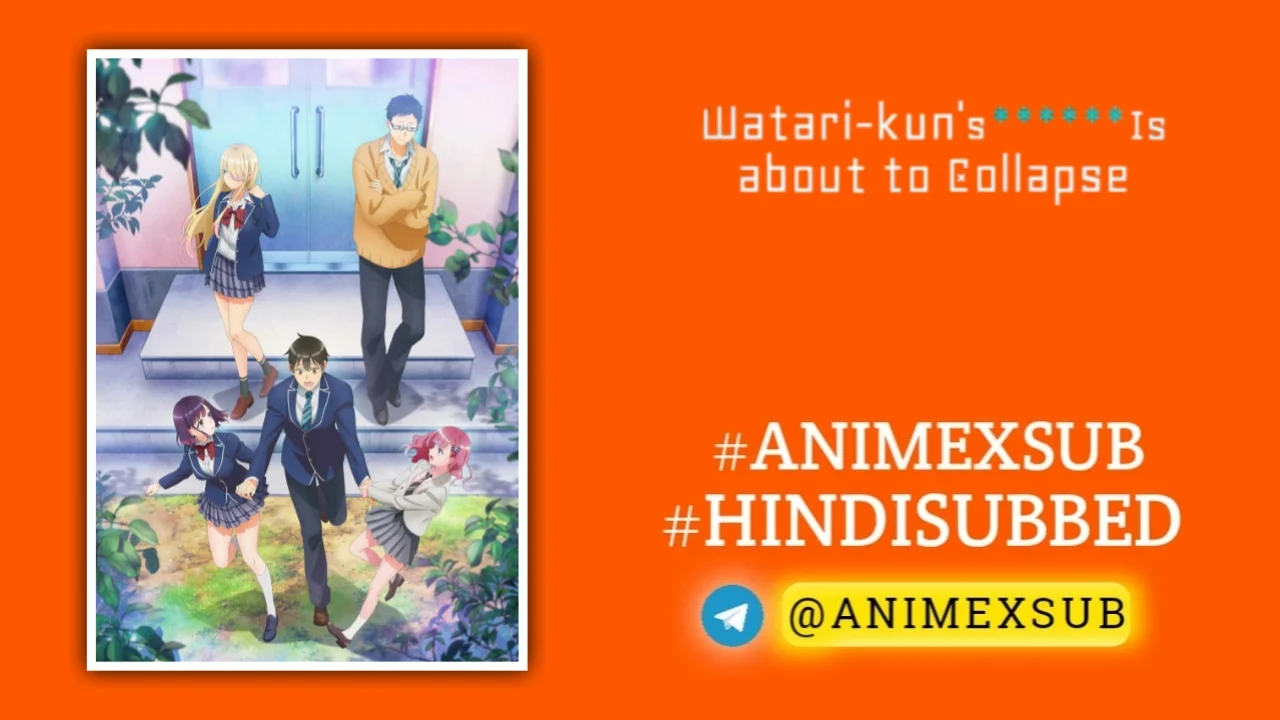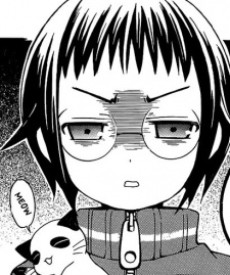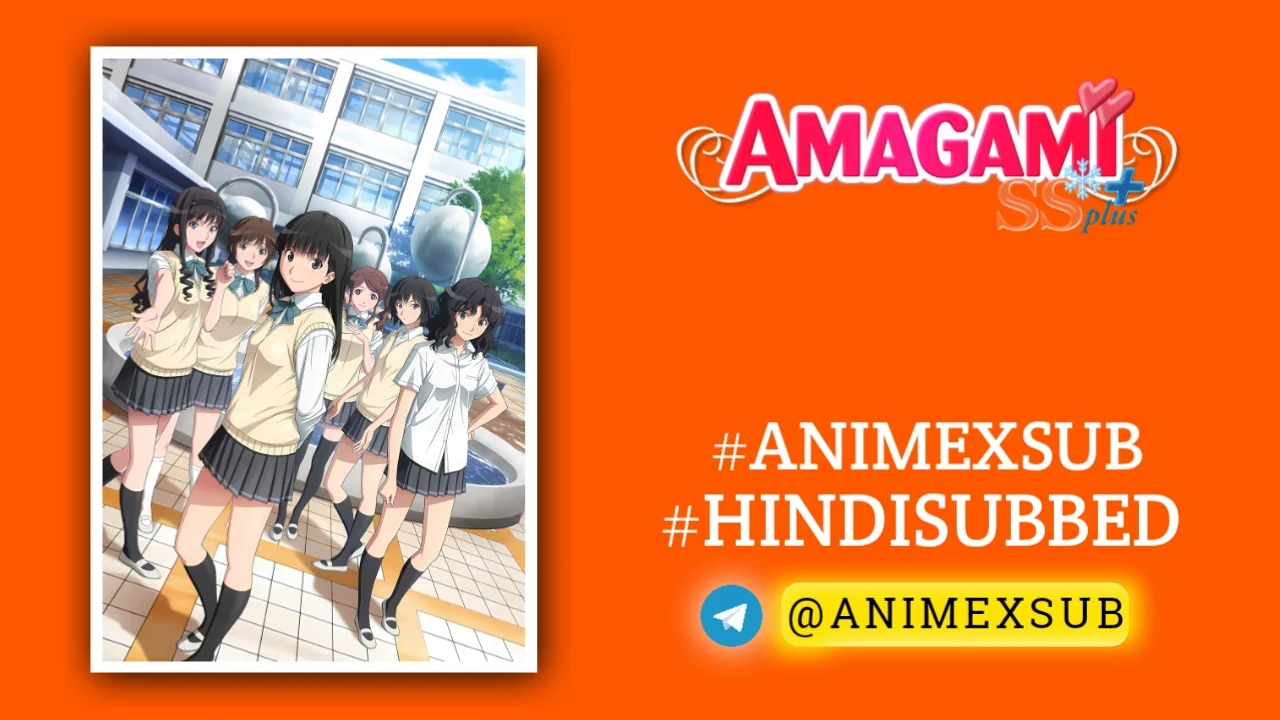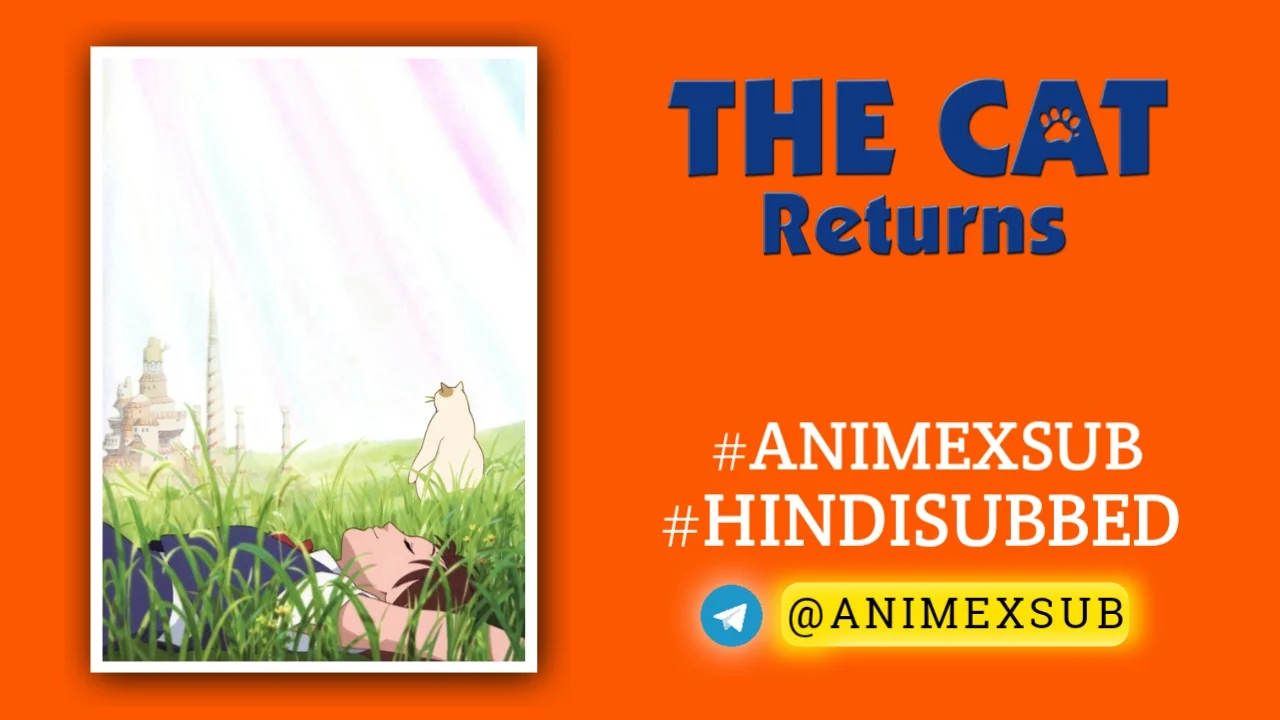
Watari-kun’s ****** Is about to Collapse Hindi Subbed [11/13]

Watari-kun no xx ga Houkai Sunzen
Watari-kun's ****** Is about to CollapseSynopsis
Naoto Watari lives solely for his little sister, Suzushiro, until his chaotic childhood friend, Satsuki, storms back into his life. Without uttering a single word, her very presence ignites buried memories and unravels his rigid routine. As tensions rise and secrets surface, Naoto’s devotion to Suzushiro clashes with unresolved pain, threatening to collapse his fragile world. (Source: Crunchyroll)
Watch Trailer
Characters
Episodes
How To Download Tutorial
Watari-kun’s Is About to Collapse: A Fractured Rom-Com That Defies Easy Labels
In the crowded landscape of summer 2025 anime, Watari-kun no xx ga Houkai Sunzen—translated as Watari-kun’s * Is About to Collapse*—emerges not as a flawless diamond but as a jagged mosaic of emotional turmoil and comedic absurdity. Adapted from Naru Narumi’s manga, which spanned from 2014 to 2023 across Kadokawa’s Young Ace and Kodansha’s Monthly Young Magazine, this 12-episode series by Staple Entertainment dives into the psyche of a high schooler whose “collapse” isn’t just a title—it’s a slow-burn unraveling of sibling bonds, repressed desires, and the chaos of reconnection. Premiering on July 4, 2025, and streaming on Crunchyroll, it clocks in at a brisk runtime that leaves viewers questioning whether the protagonist’s world is imploding or merely evolving. What sets this apart from the rom-com slop of the season? Its unflinching gaze at codependency, wrapped in yandere-tinged humor that feels both uncomfortable and cathartic.
The Setup: A Life Built on Fragile Foundations
At its core, the story orbits Naoto Watari (voiced by Shuichiro Umeda), a 17-year-old whose existence has been redefined by loss. Two years prior, his parents’ death thrust him into the role of guardian for his younger sister, Suzushiro (portrayed with wide-eyed vulnerability by a yet-to-be-widely-praised newcomer in the dub). Relocated to their aunt’s home, Naoto’s days are a monotonous cycle of school, chores, and hyper-vigilant protection—earning him the derisive label of “siscon” from classmates who see his devotion as obsession. The asterisks in the title cleverly obscure “secrets” or perhaps something more intimate, hinting at the psychological undercurrents that Narumi’s original manga explored through subtle, slice-of-life vignettes.
The anime’s first episode masterfully establishes this tension without overt exposition dumps. Directed by Takashi Naoya, with character designs by Shōko Yasuda that blend soft, expressive lines for emotional beats and exaggerated chibi deformations for laughs, we see Naoto navigating high school isolation. His routine shatters when Satsuki Tachibana (a chaotic force voiced with manic energy) reenters his life—a childhood friend whose silent, intense presence dredges up buried memories. Unlike typical harem setups where girls orbit a bland everyman, Satsuki’s return feels invasive, her wordless stares and proximity forcing Naoto to confront how his sister-centric world has stunted his own growth. Early episodes tease this “collapse” through montages of Naoto’s internal monologues, visualized as crumbling structures—a motif that recurs visually, symbolizing not just familial strain but the erosion of his adolescent autonomy.
Character Dynamics: Depth Amid the Dysfunction
Naoto isn’t your standard rom-com lead; he’s flawed in ways that invite scrutiny rather than sympathy. Umeda’s delivery captures his quiet resolve, but the script—penned by Tetsuya Yamada and Naoya—avoids glorifying his protectiveness. Instead, it highlights the toll: Naoto skips clubs, dodges friendships, and internalizes judgment, creating a feedback loop where his “justice” (protecting Suzushiro at all costs) blinds him to her emerging independence. Suzushiro, far from a damsel, evolves from dependent little sister to a figure grappling with her own identity, her subtle rebellions (like sneaking out or questioning Naoto’s rules) adding layers to their bond. This isn’t the sanitized sibling dynamic of feel-good tales; it’s raw, echoing real psychological strains of grief and codependency, with hints of yandere undertones in Naoto’s vigilance that some viewers found “uncomfortable” in Reddit discussions.
Satsuki steals scenes as the catalyst, her chaotic twintails and yellow hair marking her as the visual wildcard. Her reintroduction isn’t played for fanservice—though there are cheeky moments—but for disruption, her unspoken history with Naoto unraveling his facade. Supporting cast like the glasses-wearing Ishihara adds levity, her more grounded chaos contrasting Satsuki’s intensity, leading to ensemble antics that blend schoolyard pranks with deeper interrogations of jealousy and loyalty. The English dub, debuting July 18, amplifies these nuances; Naoto’s voice cracks with exhaustion, while Satsuki’s silence is punctuated by explosive outbursts, making the “collapse” feel visceral. MAL forums praise how these dynamics avoid clichés, with one user noting, “It’s slop I like—protag’s based, but the girls keep it unpredictable.”
Yet, the series’ uniqueness lies in its refusal to resolve conflicts neatly. Mid-season arcs delve into Naoto’s past, revealing how parental loss warped his priorities, while Satsuki’s motivations—tied to a shared childhood trauma—mirror his own fractures. This isn’t empowerment porn; it’s a mirror to how trauma lingers, with humor derived from the absurdity of high school amid personal apocalypse.
Production and Style: Elevated Execution in a Mid-Tier Package
Staple Entertainment’s adaptation punches above its weight technically. Animation quality holds steady, with fluid sequences during emotional peaks—like a rain-soaked confrontation in episode 7 where Naoto’s world literally blurs—courtesy of chief animation director Yukiyo Komito. Backgrounds evoke a subdued suburban Japan, contrasting the characters’ vibrant designs to underscore isolation. The OST, featuring theme songs by up-and-coming artists revealed pre-premiere, leans into indie pop with melancholic undertones, syncing perfectly with “houkai” (collapse) visuals: subtle cracks in screens or fading colors during Naoto’s breakdowns.
Pacing is the series’ secret weapon. Clocking 24 minutes per episode, it balances rom-com tropes—awkward encounters, accidental intimacy—with introspective lulls, avoiding the rushed finales plaguing similar shows. No major filler; the 12 episodes faithfully adapt key manga arcs up to volume 8, leaving room for potential season 2 teases in the finale’s ambiguous cliffhanger. Drawbacks? Some side plots, like club recruitment hijinks, feel obligatory, and the censorship of the title’s asterisks occasionally undercuts thematic punch. Still, it’s a step up from 2025’s glut of isekai slop, offering rom-coms a blueprint for emotional authenticity.
Thematic Resonance: Beyond the Laughs, a Meditation on Breaking
What elevates Watari-kun’s * Is About to Collapse* to “next level” status is its subversion of genre expectations. Rom-coms often peddle easy fixes—love conquers all—but here, the “collapse” is multifaceted: Naoto’s emotional walls crumble under Satsuki’s influence, Suzushiro asserts agency, and friendships form from shared vulnerabilities. It probes themes of grief’s long shadow, the blurred line between protection and control, and the terror of change in adolescence. Yandere elements, while present, are critiqued; characters call out Naoto’s intensity, forcing growth rather than excusing it.
In a season dominated by flashy action (Clevatess) and sequels (My Dress-Up Darling S2), this series carves a niche for introspective comedy. Reddit threads highlight its “uncomfortable” edge as a strength, with users debating Naoto’s arc: Is he a hero or a hindrance? By finale, the collapse isn’t total destruction—it’s reconstruction, hinting at healthier bonds without tying bows.
Why It Stands Out: A Must-Watch for the Discerning Viewer
Watari-kun no xx ga Houkai Sunzen isn’t revolutionary in plot, but its execution—blending heartfelt dysfunction with sharp wit—makes it a standout. For fans of The Quintessential Quintuplets or Kaguya-sama, it offers familiar tropes with psychological depth. MAL scores hover around 7.5, but its cult potential lies in rewatch value: spotting foreshadowed cracks or appreciating voice acting layers. In 2025’s anime deluge, it’s a reminder that the best stories fracture before they heal—unique, unflinching, and profoundly human.1













Sir , episode 9 is not available so i request to re-upload this video
Okk I will upload episode 9,10 both